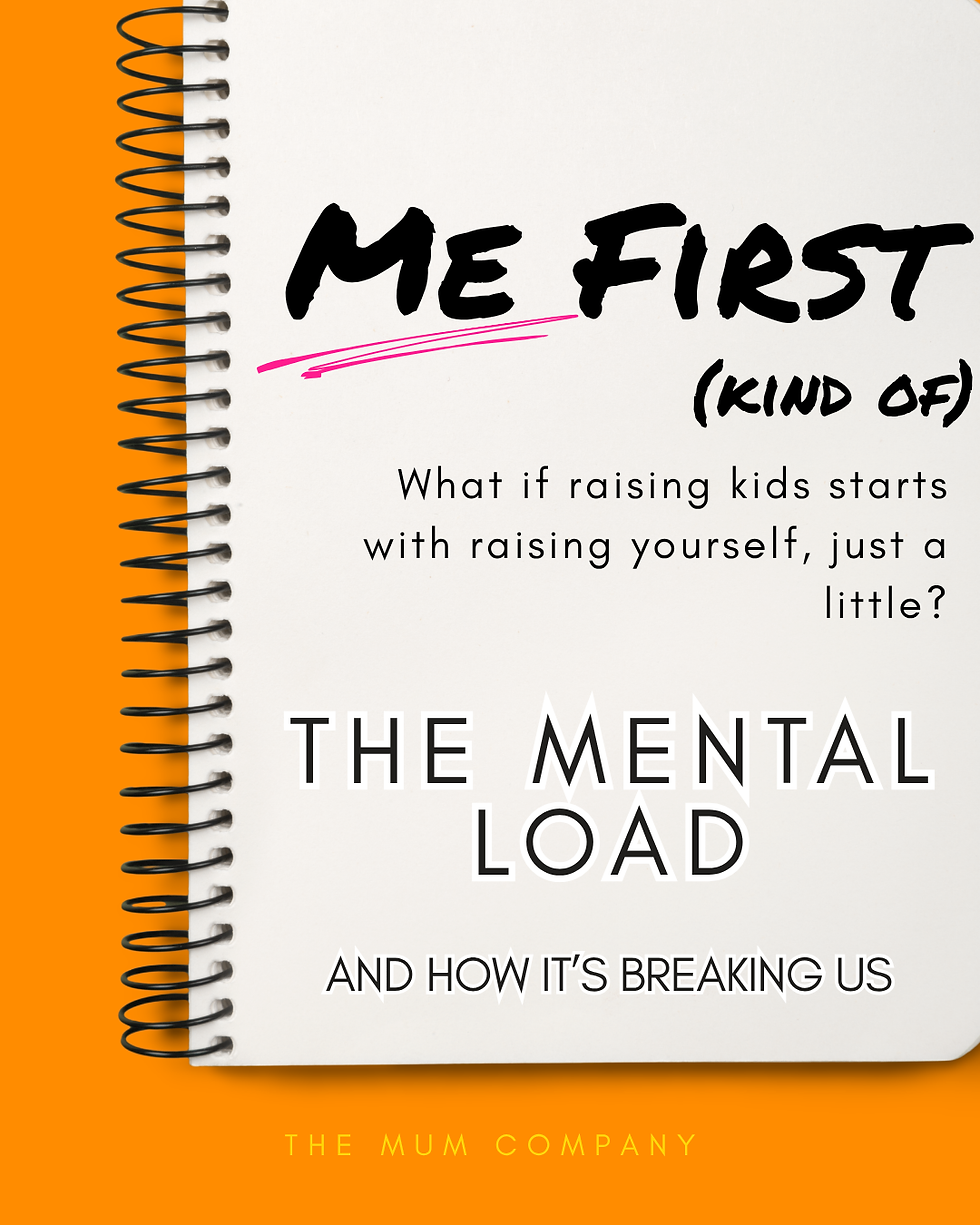The Mental Load — And How It’s Breaking Us
- The Mum Company

- May 29
- 3 min read
🟡 What is the Mental Load, Anyway?
We’re done pretending it’s “just part of being a mum.”
The mental load is the constant, invisible labour of thinking, planning, and worrying about everything and everyone.
It’s not about the actual tasks (like packing the bag or doing the dishes) — it’s about carrying the mental weight of remembering to do them.

It’s gendered as hell.
Even in so-called “modern” homes, it’s usually mums who keep all the lists, track the birthdays, worry about whether the kids have enough jumpers.
It’s unpaid. It’s unspoken.
And it’s breaking us.
🟡 Emotional Labour, Decision Fatigue, and the Delegation Myth
It’s not just remembering stuff.
It’s the endless emotional labour: the soothing, the mood-checking, the holding space for everyone else’s feelings.
It’s the decision fatigue: the million tiny decisions you make every day, from what’s for dinner to how to talk to the school about that meltdown.
And let’s not even start on the myth of “just delegate!” — as if delegating doesn’t take more energy and mental gymnastics.
🟡 So What the Hell Do We Do?
We’re not here to just moan about it (although moaning is deliciously cathartic).
We’re here to take the weight off.
Redistribute the mental load.
This chapter is about strategies that actually help:
✅ Naming it — because half the problem is it’s invisible
✅ Sharing it — whether that’s with a partner, family, or even your kids (age-appropriate, obviously)
✅ Setting boundaries — your time, your brain, your energy matter
✅ Letting go of the idea that you have to be everything, all the time
🟡 Backed by Real-World (and Real-Research) Truths
The mental load isn’t just a catchy phrase — it’s real, and it’s everywhere.
Emma’s Comic on Mental Load
If you haven’t seen Emma’s comic (“You Should’ve Asked”), do yourself a favour and read it. She beautifully captures how so many of us become the default keepers of the household’s emotional and logistical life.
It’s not about “helping out” — it’s about carrying the constant responsibility of thinking for everyone else.
(And yes, it’s French, but mental load fatigue is a universal language.)
⸻
The Cognitive Burden: Science Has Our Backs
Psychologists call it cognitive load or cognitive burden: the total amount of mental effort being used in your working memory.
• In homes where the mental load is mostly shouldered by one partner (often the mother), studies have shown that the strain can lead to chronic stress, sleep disturbances, and even burnout (Mikulincer & Shaver, 2016).
• A 2019 study in Sociology of Health & Illness found that this cognitive burden often remains invisible — even in relationships that claim to be “egalitarian.”
• Another 2020 study in Journal of Marriage and Family found that mental load-related exhaustion isn’t just about “time” — it’s about the mental toll of having to plan, anticipate, and remember everything.
⸻
The Financial Translation: It’s a Full-Time Job
Want to put numbers on it?
A 2016 study by Oxfam estimated that unpaid domestic and care work (including mental load) would be worth £1 trillion a year in the UK alone if it were paid at minimum wage.
That’s not your imagination — that’s real economic value.
But because it’s unpaid and expected, it often goes unrecognised and undervalued.
⸻
So What’s the Point?
The point is:
✅ You’re not “overreacting” when you feel like your brain is about to combust.
✅ You’re not failing because you can’t keep up — you’re carrying a job that doesn’t even exist on paper.
✅ You’re allowed to demand better — from your family, your partner, or even yourself.
This isn’t a personal flaw.
It’s a cultural blind spot — and it’s costing us our well-being, one mental spreadsheet at a time.
_edited.png)



Comments